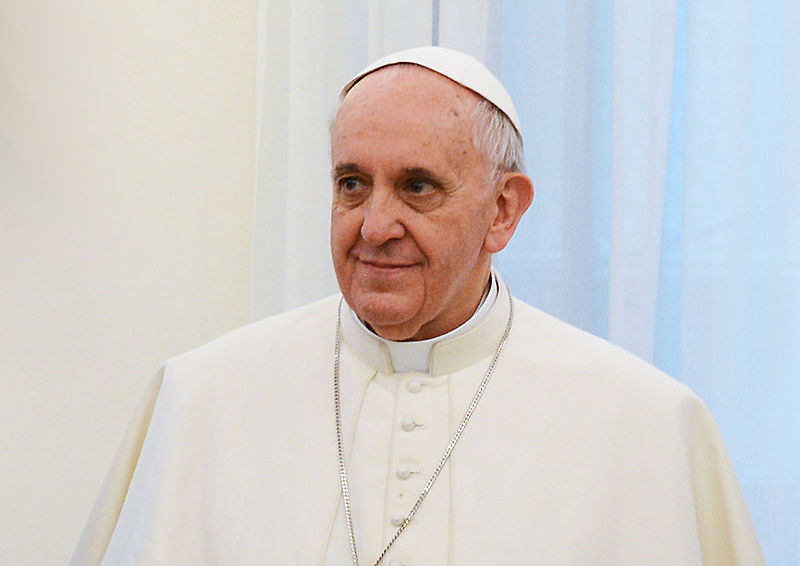
Do we still have faith in science? Progress, the Pope and belief in things we can’t see
By Stephen H. Jones

‘What has become clear to me in recent years is that the old dream of progress, which used to be assumed, is being replaced in popular culture by visions of disaster, ecological catastrophe in particular’. So said Robert Bellah, one of the twentieth century’s most accomplished scholars of religion, in 2008. His words have seemed apt following the coverage of Pope Francis’s encyclical on the environment. To take a widely quoted passage:
Doomsday predictions can no longer be met with irony or disdain. We may well be leaving to coming generations debris, desolation and filth. The pace of consumption, waste and environmental change has so stretched the planet’s capacity that our contemporary lifestyle, unsustainable as it is, can only precipitate catastrophes, such as those which even now periodically occur in different areas of the world.
Both Pope Francis and Bellah in his last and most ambitious book, Religion in Human Evolution, adhere to a kind of cultural pessimism. This pessimism is marked not by faith in technology but the belief that as human societies become more complex, they place ever greater – and now, potentially disastrous – demands on the world that we all inhabit. As Pope Francis put it, ‘Our Sister, Mother Earth … now cries out to us because of the harm we have inflicted on her by our irresponsible use and abuse of the goods with which God has endowed her’.
Such cultural pessimism is not exactly new. The unfolding disaster of the two world wars prompted a number of cultural critics, such as the German Jewish philosopher Religion in Human Evolution, to conclude that the promise of the Enlightenment to improve humanity’s condition had been broken. But over the last two or three decades such feelings have appeared more pervasive. The emergence of debates about ‘post-modernity’ in the 1980s and 1990s in part reflected the belief in large parts of the academy that the notion of human progress through science and technology was, at best, a misguided dream. Pope Francis, too, appears to believe that his pessimism (or perhaps, realism) is growing: ‘Following a period of irrational confidence in progress and human abilities, some sectors of society are now adopting a more critical approach’.
What is less clear, however, is whether this sense of impending catastrophe is – as Bellah claims – a popular sentiment, or something limited to academic and cultural élites. Outside of a fairly narrow intellectual circle, do people across the West still have ‘faith’ in science to provide technological solutions, answers to questions, and a sense of purpose? Or are we truly entering a period in which expected advance is replaced by expected decline?
One answer to these questions comes from the International Social Survey Programme (ISSP), whose questions on the environment were analysed recently by the sociologist John H. Evans. The ISSP was carried out three times in 1993, 2000 and 2010 in countries such as Spain, Germany, Norway, the US, and the UK. It contains three relevant questions: Do we believe ‘too often in science, and not enough in feelings and faith’? Does ‘modern science [do] more harm than good’? And will ‘science … solve our environmental problems with little change to our way of life’. The results it provides make for highly interesting reading, and seem to show that Bellah and Pope Francis are incorrect: for many in the West, science remains an object of faith and trust.
Across the majority of the countries surveyed, the perception that people should believe in science and not in feelings and faith (which Evans takes as a measure of science’s ability to provide meaning) is increasing. People do not feel as strongly that science will provide a solution to the environmental problems that humanity faces, but this sentiment, too, is growing in strength, albeit not as consistently and clearly. Interestingly, the idea that people should favour science over faith, and that science overall does more good than harm, increases with wealth: the higher a country’s GDP, the greater its faith in these aspects of science (although the same does not hold for faith in science to provide solutions to environmental problems).
If we split these three questions up, the results become more interesting still. The first question, which asks if people should rely more on science than faith, is answered differently by religious and non-religious people: Christians of all denominations, both liberal and conservative, are more likely to disagree with the idea that we should believe in science rather than faith. Indeed, this question follows patterns familiar to anyone who studies dynamics of secularisation: faith in science in this sense is higher among the young, the rich and the educated. The third question about faith in science’s ability to solve environmental problems is different, however. The patterns related to age and wealth disappear. Religion has no clear impact. Education does have an impact, but the pattern is reversed: more educated people have less faith in science to address environmental challenges. Bellah’s opinion, then, is more common among highly educated people like him, and less common among those who do not have a university-level qualification.
None of this is to say anything about whether faith in science – in its different forms – is misplaced or not. Some kind of technological solution to environmental challenges may emerge. Alternatively, Pope Francis’s position, that addressing the issue of climate change requires a move away from the ‘technocratic paradigm’ and a reorientation of humanity’s relation to the natural environment, may be proven right. But what we can say is that, against Bellah, the idea that assumptions of progress are being replaced with visions of disaster is misplaced. What the ISSP seems to indicate is that the West may even be moving in the opposite direction.
It would, of course, be of great interest to unpick some of this further. How intimately, if at all, is this growth linked to other social trends in the West – to secularisation and individualisation? The fact that some forms of faith in science differ little between religious and non-religious individuals seems to suggest that faith in science cannot be seen simply as a competitor to faith in a religious tradition, but we know little about the dynamics at work here. More ambitiously, it would be fascinating to see if these trends extend beyond Europe and North America. Do other countries demonstrate this same gradual increase, or is it a Western peculiarity – something perhaps regarded elsewhere in the world as idle fiddling while Rome starts to burn?
By Stephen H. Jones

Stephen H. Jones is a a sociologist of religion specialising in the study of Islam and Muslims in the UK and religious and non-religious publics’ perceptions of science. He is a Lecturer at the University of Birmingham and General Secretary of the Muslims in Britain Research Network. He writes here in a personal capacity. For more see his Research Profile.
The image of Pope Francis is used courtesy of the Presidency of the Nation of Argentina and is licensed under the Creative Commons Attribution-Share Alike 2.0 license.
